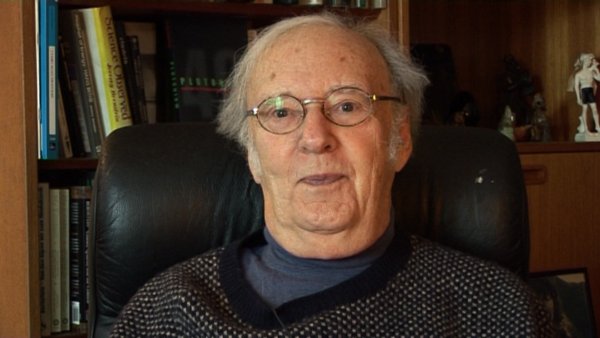NEXT STORY

You have to decide: physics or maths
RELATED STORIES

NEXT STORY

You have to decide: physics or maths
RELATED STORIES


|
Views | Duration | |
|---|---|---|---|
| 11. Playing the trumpet | 340 | 00:35 | |
| 12. Where should I go to college? | 467 | 02:17 | |
| 13. How to steer clear of trouble | 377 | 01:15 | |
| 14. I had no interest in becoming a scientist | 378 | 02:02 | |
| 15. Understanding the theory of relativity | 654 | 02:52 | |
| 16. Philipp Frank lectures | 533 | 03:05 | |
| 17. Am I smart enough to take calculus? | 1 | 708 | 02:52 |
| 18. The difference between Schwinger's and Weiskopf's lectures | 947 | 01:33 | |
| 19. You have to decide: physics or maths | 1 | 654 | 03:47 |
| 20. Choosing physics | 503 | 01:48 |


So I continued in mathematics in graduate school but I was drifting toward physics at that time and I hadn't taken any physics but I was drifting in that direction.
So I took my first course in quantum mechanics from Schwinger. And it was an extraordinary course, though I didn't appreciate it really at the time, because I just didn't know anything but I certainly appreciate it now. I mean it was fine, the first part, where he talked about the reasons for there being a quantum theory, but then he had his own development. He was in rivalry with Feynman. Feynman had a quantum theory, Schwinger had a quantum theory and so Schwinger's personal quantum theory was abstract and, I think powerful and abstract, and completely the wrong thing to teach to students.
So we used to go down to MIT and listen to [Victor] Weisskopf lecture on quantum theory. Weisskopf was completely different. I remember the first lecture I heard of Weisskopf. He came in and there was a big class, all men, and he said, 'Boys, I had a wonderful night last night.' And everybody said, 'Yay, Vicky, bravo, bravo.' He said, 'No, no, it's not what you think. I finally understood the Born approximation.' Then he explained the Born approximation
Born in 1929, Jeremy Bernstein is an American physicist, educator and writer known for the clarity of his writing for the lay reader on the major issues of modern physics. After graduating from Harvard University, Bernstein worked at Harvard and at the Institute of Advanced Studies at Princeton. In 1962 he became an Associate Professor of Physics at New York University, and later a Professor of Physics at Stevens Institute of Technology in Hoboken, a position he continues to hold. He was also on the staff of The New Yorker magazine.
Title: The difference between Schwinger's and Weiskopf's lectures
Listeners: Christopher Sykes
Christopher Sykes is an independent documentary producer who has made a number of films about science and scientists for BBC TV, Channel Four, and PBS.
Tags: Massachusetts Institute of Technology, Julian Schwinger, Victor Frederick Weisskopf, Richard Feynman
Duration: 1 minute, 33 seconds
Date story recorded: 15th June 2011
Date story went live: 17 August 2011